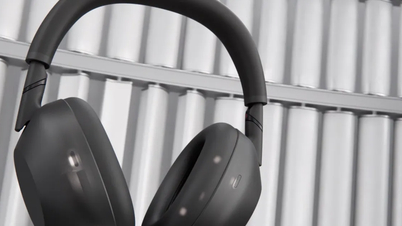A new study published in the scientific journal ACS Omega (American Chemical Society) has surprised the scientific community: powder extracted from okra and fenugreek seeds can remove up to 90% of microplastics in polluted water.
Notably, of these two plants, okra is a familiar ingredient, easy to find in Vietnam.
Remove microplastics with natural ingredients

Okra is a familiar dish of Vietnamese people (Photo: Getty).
The project was carried out by a research team from Tarleton State University (Texas, USA), led by Dr. Rajani Srinivasan - an expert in environmental chemistry and water treatment using biological materials.
The group aims to develop non-toxic microplastic treatment methods that are easy to apply in residential communities, especially in areas that do not have access to high technology.
In the study, the team used sliced fresh okra and dried fenugreek seeds soaked in water overnight, then dried and ground into powder.
When 1g of this powder is dissolved in 1l of water containing polystyrene microplastics (one of the most common types of microplastics), the plastic particles will clump together and settle to the bottom, allowing for easy removal.
Surprising experimental results
Specifically, the research team tested these powders with three simulated water sources: seawater, freshwater, and groundwater. The results were published as follows:
- Okra powder removes 67% of microplastics in 1 hour in pure water, 80% in seawater.
- Fenugreek seed powder removes up to 93% of microplastics in pure water, and 80–90% in groundwater.
A 1:1 mixture of okra and fenugreek removed 70% of microplastics in just 30 minutes in purified water, and 77% in fresh water.
For further validation, the team used Raman spectroscopy and fluorescence microscopy techniques to accurately track the amount of microplastic before and after treatment.
The results were promising for most microplastics measuring 1–5 micrometers, mostly the types commonly found in wastewater and drinking water, the researchers said.
Why is food effective in eliminating plastic?
The mechanism of action of these extracts lies in their ability to form biogels from the mucilage in okra and the polysaccharide compound in fenugreek seeds.
They act as natural agglomerants, clinging to the surface of microplastics and helping these particles stick together, forming clusters that are easy to separate.
“The special thing is that we do not need to use synthetic chemicals, but only need ingredients available in nature, completely friendly to health and the environment,” shared Dr. Rajani Srinivasan.
Today, many water treatment plants around the world still use polyacrylamide, a synthetic polymer, to filter water.
However, many previous studies such as those published in the Journal of Hazardous Materials have shown that polyacrylamide can leave toxic residues, affecting the nervous and endocrine systems if accumulated over a long period of time.
In contrast, plant extracts such as those used in this study are completely non-toxic, biodegradable, and easily produced locally. This is an important advantage, especially in developing countries.
Of the two ingredients, okra is a popular vegetable in Vietnam, easy to grow, cheap and can be harvested year-round. Using okra to produce microplastic water filtration materials not only helps people have more solutions for clean water treatment but also opens up a new direction in agricultural development combined with biotechnology.
According to WWF, the average person may consume 5g of microplastics per week, equivalent to a credit card. Meanwhile, research from New York University shows that microplastics can cause endocrine disruption, chronic inflammation and affect the immune system.
Source: https://dantri.com.vn/khoa-hoc/2-loai-thuc-pham-loai-bo-90-vi-nhua-viet-nam-san-co-20250624083808951.htm


![[Photo] The 9th Party Congress of the National Political Publishing House Truth](https://vphoto.vietnam.vn/thumb/1200x675/vietnam/resource/IMAGE/2025/6/24/ade0561f18954dd1a6a491bdadfa84f1)


![[Photo] Close-up of modernized Thu Thiem, connecting new life with District 1](https://vphoto.vietnam.vn/thumb/1200x675/vietnam/resource/IMAGE/2025/6/24/d360fb27c6924b0087bf4f288c24b2f2)

![[Photo] General Secretary To Lam meets with the Group of Young National Assembly Deputies](https://vphoto.vietnam.vn/thumb/1200x675/vietnam/resource/IMAGE/2025/6/24/618b5c3b8c92431686f2217f61dbf4f6)































































































Comment (0)